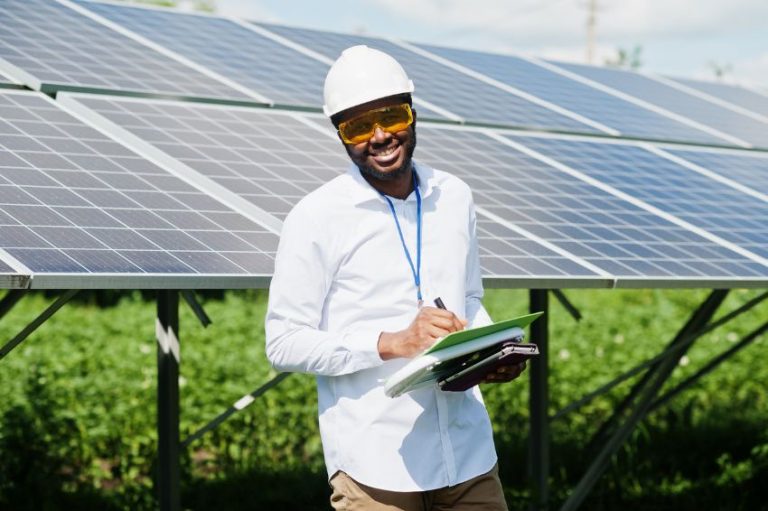The differences between types of knowledge are increasingly clear for the renewable energy market.
Much is said about the valorization of soft skills, and that not only technical knowledge makes a company. However, it is undeniable that technical knowledge is the basis for any area, technological or not, to become relevant and reliable.
After all, it is technical knowledge that unites theory and practice in a measurable and accurate way. And no one wants to invest a lot of time and money in a project that is incapable of delivering concrete results, especially due to the costs involved, right?
The importance of know-how It is even reflected in the worker's search for training.
According to IBGE, 49.3 million people who complete high school pursue technical courses. Between 2013 and 2019, enrollment in technical courses grew by 17%. The goal of National Education Plan is to triple enrollment in technical professional education by 2024.
Given this clear trend in Brazilian education, the question remains: Does our sector truly understand the importance of technical knowledge? What are the main benefits of focusing on this technical perspective? How can projects in the solar energy sector evolve technically? That's what I'll talk about today.
Enrich the company's knowledge base
Every company needs the team to be on the same page when it comes to knowledge about services and products. For smaller projects, with on-grid inverters or MLPE, you are required to at least understand the project components, basic functioning and their purposes, as well as a good generation analysis.
The knowledge base is a documentation of information and promotes greater efficiency, quality and trust for the team. Furthermore, the simple activity of continuing to feed the knowledge base brings more collaboration and productivity to the routine.
With technical knowledge, your base becomes deeper and more detailed so that the team knows how to answer the why of each activity. No one will feel like they need to do something a certain way just because a superior prefers it. Each employee must be able to understand how something should be done to achieve the objectives, given that the speed of the market is intense, and thus, they will feel more autonomy to deliver the best added value.
Increase the technical value of projects instead of entering into price wars
It is common for companies to fall into the trap of pricing only according to the competition. Price wars can be avoided when we are able to measure how the technical aspects of the project impact the result delivered to the client.
When we enter medium/large projects, this line of knowledge needs to be even more highlighted, as the level of competition begins to be even more implicative at the time of closing the contract.
Therefore, it is important to start the negotiation with planning and execution demonstration, covering topics such as the need to update the primary cabin, grounding, specific understanding of the best equipment and mainly the new Law 14,300 which was approved and sanctioned in January this year.
A project of technical value is one that, in addition to quality and organization, has indicators that prove its efficiency. If you can show the customer, in numbers, the advantage they will have when being served by your company, the price will no longer be questionable. The customer needs to know that they are paying for greater assertiveness than other options on the market.
Create a greater bond of trust between the installing company and the end customer
Finally, I reinforce how technical knowledge is an ally of one of the main decision factors when purchasing: trust. According to the Edelman Trust Barometer study, carried out in June 2021 with 14 thousand people from 14 countries, 79% of those interviewed say that it is more important to trust brands today than it was in the past. Additionally, 36% say they no longer buy from brands they love because they no longer trust them.
We know that solar energy projects, and other services in the sector, are investments that aim to save money in the long term, but they can initially weigh heavily on the consumer's pocket. The investment makes the relationship of trust even more valuable, as the consumer wants to be sure that they are paying for something efficient. By positioning yourself as a technically qualified specialist, capable of anticipating and preventing problems in the project, your bond of trust with the consumer will be strengthened.
Technical training can no longer wait
In 2021, Brazil created 153 thousand jobs in the solar energy sector. Data from International Renewable Energy Agency (IRENA) show that Brazil is the eighth country that generates the most jobs in the sector, ahead of historical leaders in the segment, such as Germany and the United Kingdom.
Drawing a parallel between this data and the increased demand for technical courses in the country, we have in mind an enormous potential for growth in the specialized workforce in the sector. Now, in 2022, it is time for engineers, designers, installers and other professionals in the sector to seek to update their technical knowledge. Competition will be strong, and the consumer has already made it clear: no trust, no business.


















3 Responses
To sell it you need technical knowledge, which is not difficult at all, after all photovoltaic energy has been around for years, Einstein won the Nobel Prize with it.
Where and how can I qualify for the renewable energy market, such as photovoltaic solar? I'm very interested.
It would be very good for me.
Congratulations.
He was a commercial representative for a Solar Energy company. Unfortunately, the representative was not even given any training. The interest in selling is so great that they are forgetting this detail.
I've been following up for 3 months and all I know is from searching on my own. I didn't take a specific course but I try to participate in Lives and training that are offered on the Internet. And I've already noticed that here in São Paulo there is great difficulty in selling solar energy. Because I see the big difference with other States.
I believe that companies that hire their representatives should pay better attention to technical training.
Thanks.